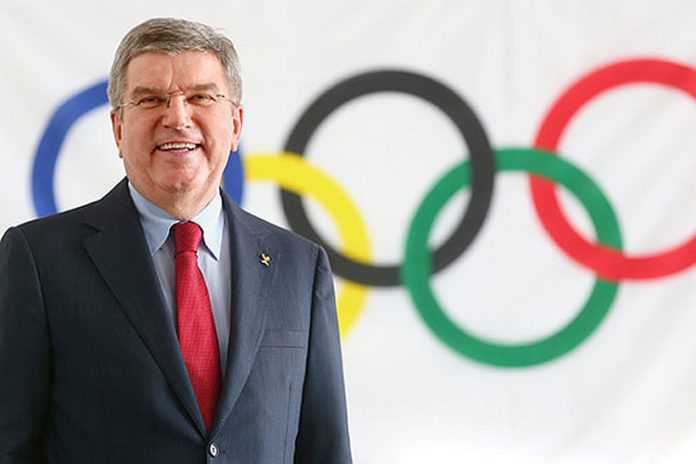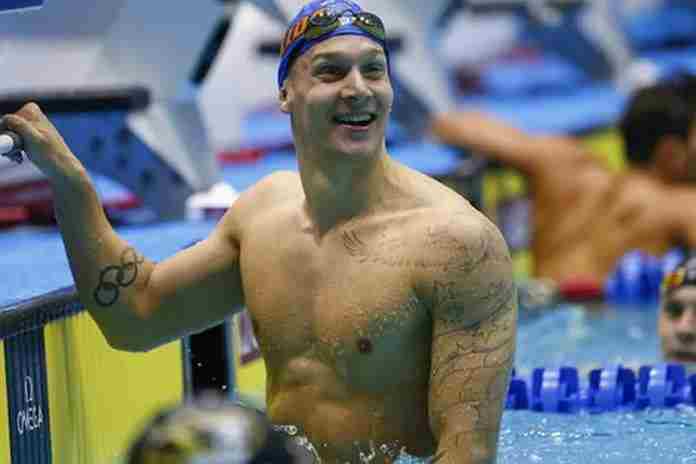One of the ways you can measure the true values of a leader is to watch them when the pressure is off.
In the midst of the coronavirus pandemic, the International Olympic Committee president, German Thomas Bach, continues his relentless march to make the organization of the Olympic Games less expensive and less trying for the organizing committees.
The headline of Friday’s news release spells it out a common-sense approach to a specific problem raised by the pandemic which has far-reaching implications for the future:
“The Beijing 2022 Organising Committee, winter Olympic International Federations (IFs), International Olympic Committee (IOC) and International Paralympic Committee (IPC) have jointly decided to develop an adapted sports testing programme in preparation for the Olympic and Paralympic Winter Games Beijing 2022. The adapted programme will replace the organisation of a series of international test events originally planned for the first quarter of 2021.”
This is completely unthinkable in normal circumstances, but the coronavirus makes 2020 anything but normal. The explanation:
“With the Beijing competition venues all scheduled for completion by the end of 2020, and the successful pre-homologation of the Yanqing Sliding Centre and IF venue visits last week, it was felt that the Olympic and Paralympic Winter Games Beijing 2022 are well on track, and that adapted testing will reduce the complexity of this season for all involved, including the athletes. Beijing 2022 will now enter into discussions with each IF to determine the details of the adapted testing programme, in liaison with the IOC and IPC.”
Now what an “adapted sports testing programme” looks like for an Olympic Winter Games is unknown, but it will surely limit athlete participation to those already in China to ensure good virus control and eliminate all of the work required to put on a full-fledged competition, including support for media, fans and sponsors. All of this will save the Beijing organizers substantial costs in organizing a series of competitions in all of the winter-sports venues.
Some of those tests would have been existing World Cup events, so the savings might be modest there, but consider the impact for a summer Games, with 28 sports and even more disciplines!
The Tokyo 2020 organizing committee scheduled a lot of test events, but out-sourced the production of some of them to outside companies, while the organizing committee essentially watched.
So, can Olympic organizing committees in Paris for 2024, Los Angeles in 2028 and beyond start thinking about jettisoning test events? You bet they can.
As the IOC noted:
“Testing of the venues is a requirement for IFs to approve use at the Games so that athletes can rest assured that the venues in 2022 will be of the highest possible standard and in the safest and securest environment.”
That doesn’t mean a competition. Remember that Bach stated, in 2017, that “What we will do, starting from the 2026 winter Games bid process, is that every venue that has hosted a world championship or a World Cup (sports) event will be considered as approved” for bidding purposes.
It doesn’t make a big leap to think of using a youth or junior or even a Masters event – wouldn’t that be new! – to “test” a venue from the IF perspective, a much easier task.
Eschewing test events does leave the organizing committee untested in terms of its capabilities, but perhaps this will change as well, especially if one or two large events are held in the year prior to the Games that actually test the whole organization. The obvious choice would be – as suggested here – to move the Paralympic Games to the year prior to the Olympic Games. This will advance the organizing committee’s development as nothing else can, and will have a significant, positive impact in providing a higher profile for these remarkable athletes.
Cutting out some or most of the plethora of test events now demanded by the IFs not only benefits the organizing committee – financially and in the staff time spent to support them – but the IFs as well. The reduced cost to the organizers actually helps the federations, to continue to evade some of the mounting pressure on the number of events to be held during the Games, although the total number of participants continues to shrink, back to the 10,500-athlete limit first installed for the 1992 Games in Barcelona.
This is a continuation of Bach’s relentless drive to reduce the cost of the bidding process and the Games, which he undertook from the moment he became IOC President in 2013. The former IOC insistence on new venues and infrastructure is a memory, with Bach repeating the new mantra that the Olympic Games, Winter Games and Youth Olympic Games will be tailored to fit the selected host city, not the reverse.
This new approach was formalized with the IOC’s passage of the “Agenda 2020″ program in December 2014, and expanded with the 118-point “The New Norm” protocols in February 2018. And it has not stopped.
Although only applicable to the Youth Olympic Games, the IOC introduced the concept of athletes coming in “waves” to the Youth Olympic Village, instead of coming for the entire duration. There is no doubt that – over time – this will be applied to the Olympic Games to help lessen the need for host cities to build athlete villages to house 15,000+ people, but of smaller size which make sense for that community.
This is Bach’s true legacy and it came at a crucial time in the IOC’s history, when the reputation of the Games was at a low point, especially after the reported $40 billion spent on the 2008 Beijing Olympic Games and $51 billion for the 2014 Sochi Winter Games. Paris 2024 planned to build a couple of arenas and an athlete’s village, with the remaining venues either existing or temporary, but even that program has been reduced, with two temporary facilities scrapped last month in favor of existing facilities for swimming and diving, and volleyball.
Los Angeles, of course, will famously build nothing for the 2028 Olympic Games.
Has Bach saved the future of the Olympic Games? Well, there are other threats on the political front and in truth, the IOC is quite dependent on the long-term health of American television giants NBCUniversal and Discovery, which hold billion-dollar contracts for the Games for the U.S. (through 2032) and Europe (through 2024), respectively.
But the massive changes in the IOC’s approach have completely changed the way cities, regions and countries look at a possible hosting of the Games, a situation which very few long-time observers could have imagined just a few years ago. And, as Bach is showing, he’s not done.
Rich Perelman
Editor
You can receive our exclusive TSX Report by e-mail by clicking here. You can also refer a friend by clicking here, and can donate here to keep this site going.
For our 526-event International Sports Calendar from October 2020 to June 2021, by date and by sport, click here!


























